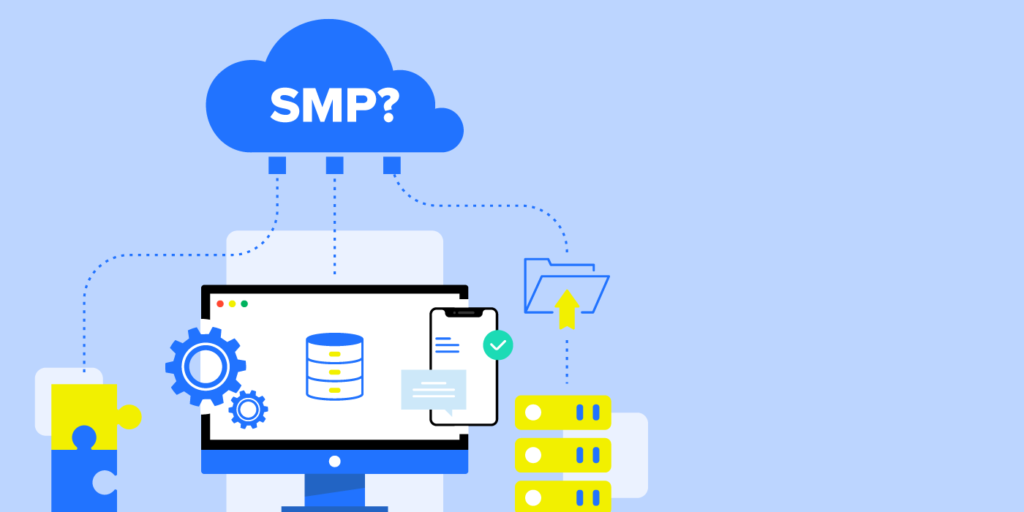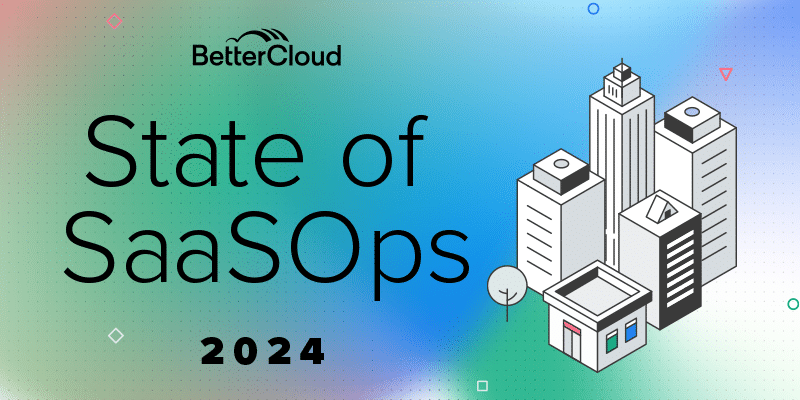How to avoid automatic software renewals and save big
August 30, 2024
6 minute read

Some surprises are fun. Like finding $20 in a pair of jeans you haven’t worn in months. Or receiving a BOGO coupon for your favorite coffee shop in the mail.
Other surprises are a lot less fun, like one of your software contracts renewing automatically when you didn’t want it to.
When details of renewal dates get misplaced or forgotten, you can find your team faced with unwanted renewals and unnecessary costs. Plus, your team could be stuck using a tool that they don’t find critical to their job, or even enjoy using, and your department could go way over what you have set in place for your software budget.
While sometimes an automatic software renewal of a SaaS contract can be convenient, other times it can cause a huge headache. Learn more as to how BetterCloud can help you avoid that headache once and for all.
69% of software contracts have an auto-renew clause and a notice period for cancellation between 30 and 90 days.
Common reasons a software renewal is missed
Whether a software contract automatically renews on accident or the renewal date is completely missed, there are typically four reasons as to why this has occurred.
- The customer didn’t give appropriate notice before ending the service. Usually, the window for giving notice for most vendors is 30 days, but sometimes a vendor could require a 60-day or 90-day notice period.
- Notice of cancellation wasn’t given in the way required by the vendor. An example would be when the customer is claiming they told the vendor they wish to cancel their contract over the phone, but the vendor requires cancellations be in the form of a written email. The vendor may also say they have no record of the phone call occurring.
- The customer was expecting a reminder or didn’t realize there was an auto-renewal set in place. This can occur when a customer isn’t taking the time to keep track of their contracts, didn’t set up an alert, or thought they had more time to establish a renewal period.
- The contract owner has been offboarded from the company and the contract details have fallen through the cracks, causing it to auto-renew.
Thankfully, when companies use BetterCloud they can feel confident that they have a solution at their fingertips for all four of these reasons.
With the comprehensive and easy-to-read dashboard where all of your contacts are housed and stored, you’ll always remain aware of how long you have until contracts are set to renew or expire, how each vendor requires notice, as well as alerts and reminders of when contracts are approaching their renewal date.
Tips to avoid automatic software renewals
For those not interested in a surprise in the form of a contract renewing unexpectedly, follow these six tips to ensure you’re always in the know.
1. Store all software renewal details in one place
When everything is stored in one easy-to-navigate place, you always know where everything is – including your software contracts.
Keep in mind that there isn’t a one-size-fits-all renewal notification period. While 30, 60, and 90 days are most common, some contracts could be as short as one day or as long as a full calendar year. Because of this, make use of BetterCloud’s Contracts and Subscriptions dashboard that shows a surface view of details at a quick glance while also allowing you to dive deeper into contract owners, the start and end date, who the owner is, billing frequency, and more.
To go one step further in contract organization, BetterCloud offers a Contract Concierge service. Because we know your company could have 100 or more tools within its tech stack, our Data Operations team handles contract entry so you don’t have to.
All you’ll need to do is find the contract and send it to our Concierge team who will add it to your BetterCloud dashboard.

2. Make upcoming renewal dates a priority
A contract that is set to auto-renew in 30 days is a bigger priority than one set to renew in 90 days. The same can be said for contracts expiring this month versus six months out.
Thankfully, a SaaS Management Platform like BetterCloud lets you visualize these dates by month, so you always know what’s around the corner. You can also change the view from the next three months to six months and even the full-year view. To be sure you keep your software budget on track, you’ll see how much money is allocated to each month’s worth of upcoming contracts.
When you hover over each month, you’ll see a quick list of which contracts are set to renew or expire that month, how much the contract is worth, what exact day of the month you’ll need to take action, and your total spend for those contracts.

3. Communicate renewal dates and renewal plans with team members
Chances are it’s more than just you who uses each software that you have a contract for. Because of this, it’s crucial that you lean on communication with your team members surrounding renewal dates and any plans you have to renew or cancel.
While there once was a time when IT was the sole owner of software purchasing, that is no longer the case, as individual employees and teams control most of the spending in today’s workforce. Because of this, renewal information can become miscommunicated, leading to unplanned or unknown renewals.
BetterCloud takes the hassle out of communication. It eliminates the use of a spreadsheet that only one person has access to, so all employees in various departments can log in and see all pertinent contract renewal information. With all of these details just a few clicks away, no one is left in the dark.
“
I really enjoy that we can see all company spend in one place. I also love when BetterCloud tells us that a contract is coming up and we need to terminate or resign.”
– Sara M. G2 Review
4. Work to eliminate shadow IT
It’s impossible to know that a contract or subscription is up for renewal if no one is aware the tool even exists within a company’s tech stack.
There are many potential risks and challenges to shadow IT, from inefficient collaboration to wasted budget spend and even various compliance concerns. But another to consider is not knowing when the contracts are set to renew or expire because your IT department isn’t aware of them in the first place.
When your IT department is using a SaaS management tool like BetterCloud, they’ll easily be able to uncover every app and tool within the company’s database, as well as when each is set to renew and expire, so you’re never over budget or caught by surprise.
5. Make use of automatic alerts and reminders
We get reminders when our car needs maintenance, when we have an upcoming doctor’s appointment, or when it’s time for our annual teeth cleaning. These reminders make our lives easier, and an automatic alert and reminder regarding a software contract can make your life a little easier, too.
Thanks to the Action Required section of BetterCloud, this dashboard provides users with a comprehensive list of contracts about to renew or expire.
You’ll see language like:
- This contract expired on August 3, 2024. Please confirm whether this contract has been renewed and add its renewal details if so.
- This contract is set to expire on December 21, 2024. Now is a good time to renegotiate or renew.
- This contract is set to auto-renew on January 18, 2025, unless a notice of cancellation is sent to the vendor before November 18, 2024. Now is a good time to make sure you need it.
Thanks to these reminders and alerts, you’ll never miss a thing or be taken by surprise.
6. Pinpoint which contracts auto-renew so you can renegotiate
One surefire way to ensure your contracts don’t auto-renew without you knowing? Don’t agree to a contract that has an auto-renew clause in the first place.
Before signing on the dotted line, take the time to understand the renewal clause. Not only should you pay special attention to how much notice you need to give a vendor in relation to cancellation or re-signing, be sure that the contract doesn’t include auto-renewals at the end of the license.
Plus, a contract with an auto-renewal clause is only beneficial to you if you’re receiving a significant pricing discount to do so. Otherwise, as a buyer, you won’t see much benefit.
In order to simplify, make BetterCloud part of your contract renewal process and workflow. Once a new contract is signed by your team, either add it directly into BetterCloud or send it over to our Contract Concierge team to add it for you immediately. This way you’ll always remain on top of your contacts and nothing goes missed.
In addition, BetterCloud lets you know which tools in your stack auto-renew. When it’s time to decide if you want to keep this tool or pivot to something else, see if you can meet with your vendor and renegotiate the terms and conditions to negate any stipulation of auto-renewing.
“
BetterCloud gives us a complete view of SaaS spending. It helps us identify shadow IT, manage our contracts (contract value, expiration/renewal reminders, etc.), and lets us know how many users are using the SaaS tools we purchase.”
– Zack W. G2 Review
Life is full of surprises
But your software stack shouldn’t be. Companies that utilize BetterCloud and all of its visibility surrounding software contracts are never surprised by auto-renewals. In fact, they’re one step ahead and always know what’s renewing right around the corner.
Learn more about how BetterCloud makes avoiding automatic software renewals easy, as well as everything from compliance, usage, and software spend with a free demo.






